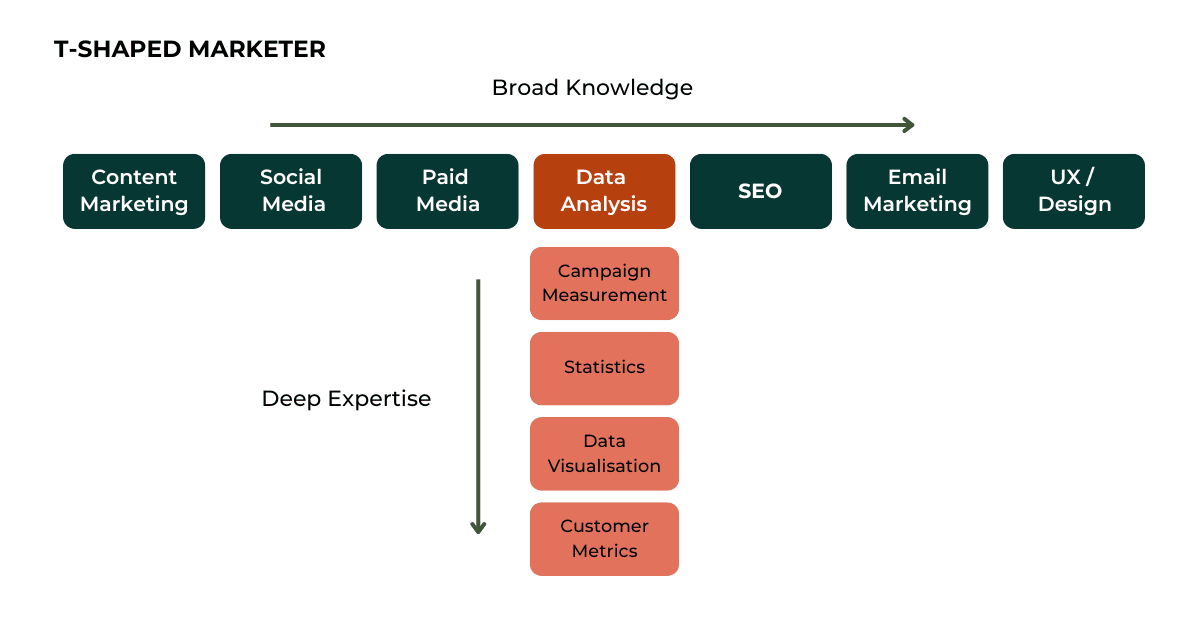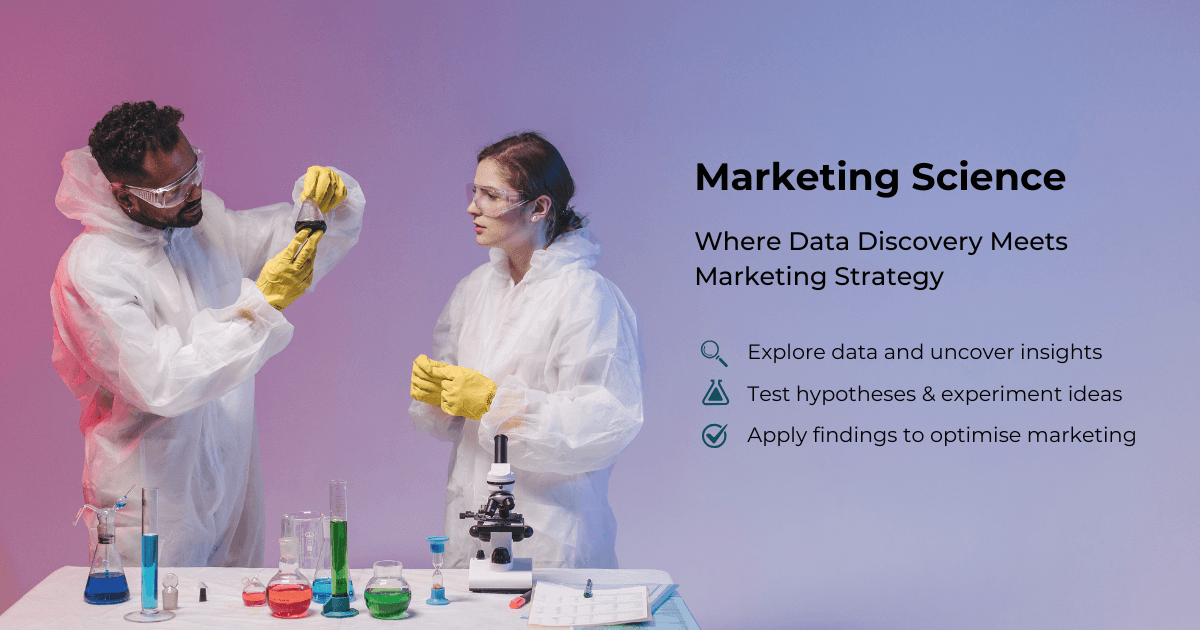Why Learning Marketing Science is My Next Big Move
Explore Marketing Science to improve data analysis, optimise campaigns, and make smarter, evidence-based decisions for better results.
A Passion for Marketing
Over the course of my career, I’ve developed a deep passion for marketing. Traditional frameworks like the 4 Ps (remember those?) have given way to a world of digital channels with endless possibilities for reaching customers.
This shift calls for a new kind of marketing professional — one who can adapt and grow with the industry.
As modern marketers, we often wear many hats. Copywriting, SEO, social media, analytics, and design are all part of the job. As a result, we’ve seen the rise of what’s known as the “unicorn marketer”: someone with broad knowledge across areas but no deep expertise in one. I fall into this category. Building a marketing department from the ground up in my current role required me to learn it all. While the experience has been invaluable, the constant change of marketing can feel overwhelming at times, like balancing on shifting ground.
Why Depth Still Matters
Versatility alone isn’t always enough. While the broad experience of a unicorn marketer is helpful, having a deep understanding in one area can be even more powerful. This is the core idea behind the T-shaped marketer model, where you have have broad knowledge but specialise in one discipline. You can read more about it here.
Over time, this concept has evolved into other models, like the M-shaped marketer. Yet, the principle stays the same: specialisation allows you to stand out and deliver mastery-driven results.
Here’s what it looks like:

Data: The Common Thread in Marketing
One thing that all marketing areas have in common is understanding and measuring performance. Every campaign, piece of content, or email is tied to specific KPIs. The ability to measure, analyse, and act on those metrics is important, and this is where I found my love for data.
For me, data is the backbone of smarter decision-making. Without it, we’re just taking shots in the dark. Data shows us what’s actually working and what’s falling flat. It allows us to adjust strategies, track campaign performance Google Analytics is a decent platform for this), and understand customers on a deeper level. We also find patterns that we might miss otherwise.
AI in Marketing
Artificial intelligence is changing how marketers work. It has automated many tasks, such as content writing, optimising keywords and even creating designs. These advancements have taken much of the heavy lifting out of everyday tasks, making it easier for us to learn and adapt to new fields quickly.
While AI has made significant strides, it’s unlikely to replace human understanding. Instead, it complements our abilities, and has helped us become more multifaceted. We can use AI for data analysis, but it still relies on human judgment to make the right call.
This is where Marketing Science and Analytics comes in — blending data fluency with marketing expertise to drive more informed strategies.
What Is Marketing Science?

If you think back to science classes from school (stay with me here), you might remember the scientific method. Start with a question and a hypothesis, test it through experiments, and analyse the results to formulate your conclusion.
Marketing Science uses similar principles. For example, imagine you want to improve email conversions. You might ask, “Will changing the colour of the call-to-action button increase customer conversions?”. By running an an A/B test, measuring with statistical methods, you can make decisions based on evidence, not just intuition.
Marketing science is about using data and analytical techniques to improve strategies and make informed decisions. A marketer with domain expertise and a solid understanding of data can directly shape strategy by asking the right questions and adapting results to meet their goals.
It involves:
- Consumer Behaviour Analysis: Understanding how people make decisions and what influences their choices.
- Econometrics and Statistics: Using statistical methods like regression analysis to assess the impact of marketing activities.
- Marketing Models: Applying structured tools like the marketing mix model to measure the effectiveness of channels and optimise budget allocation.
- Testing Hypotheses: Refining strategies by testing and validating assumptions with solid evidence.
Marketers don’t need to become full-scale data scientists. However, having enough fluency with data allows you to work independently or collaborate effectively with data teams.
Why Marketing Science Matters to Me
I’ve always loved working at the intersection of creative and technical marketing. I feel a unique thrill when diving into customer data and uncovering insights that point to real solutions and growth. I love being hands-on, but I used to found myself lacking certain skills. For example, I struggled with analysing marketing attribution or building a case for UX testing.
Researching these gaps led me to Marketing Science. Its methods gave me the tools and confidence to bridge the divide. Now, I feel more empowered to make data-driven decisions that drive results.
Thanks for reading! I’d love to connect with others looking to carve out their own niche in modern marketing.

